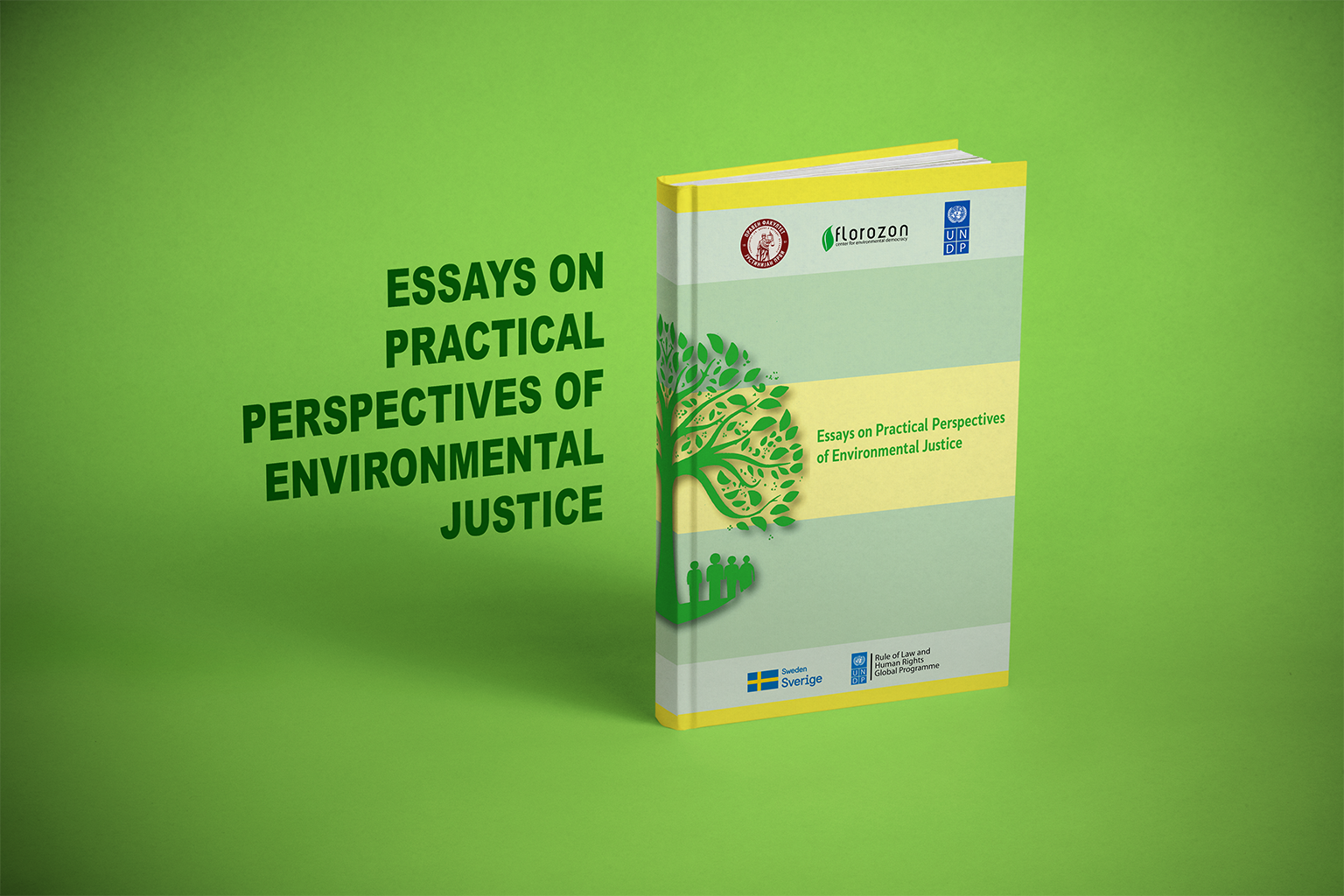On International Human Rights Day, December 10, 2024, the Faculty of Law "Iustinianus Primus" hosted a roundtable discussion titled "Environmental Human Rights and Environmental Justice – Promotion, Protection, and Advancement." The event was held under the project "Integration of Environmental Justice in Higher Education," implemented by the Center for Environmental Democracy FLOROZON in collaboration with the Faculty of Law and supported financially by UNDP.

The roundtable served as a platform to foster dialogue and collaboration among academia, civil society, institutions, and students, with the goal of advancing environmental justice in the Republic of North Macedonia. It opened with keynote speeches by esteemed guests: Prof. Dr. Sasho Georgievski, Dean of the Faculty of Law; Ms. Ana Chernishova, Deputy Permanent Representative of UNDP; and Dr. Mirjana Lazarova Trajkovska, Supreme Court Judge and former European Court of Human Rights Judge. The discussions addressed present environmental challenges and the importance of integrating environmental justice into both the legal system and education.

The event featured the presentation of the study "Integration of Environmental Justice in Curricula of Higher Education" which analyzed practices in North Macedonia, Albania, Slovenia, Serbia, Croatia, and Montenegro. This study emphasized the importance of integrating environmental law into university curricula to foster a new generation of legal professionals and policymakers equipped to address ecological challenges.

The roundtable also showcased the intellectual engagement of young minds through the presentation of essays prepared by students from the Faculty of Law tackling the topics such as:
- The constitutional right to a healthy environment in the Balkans.
- Climate action and constitutional approaches.
- The role of education and civil society in fostering climate action.
- Innovative legal solutions like emission trading schemes to combat air pollution.
- Proposals for establishing an Environmental Ombudsman for accountability in environmental justice.

Notable Statements
Ms. Ana Chernishova underlined the transformative potential of environmental justice, stating, "On International Human Rights Day, we reflect on the transformative power of human rights in shaping a just world. Today, we recognize them as practical tools for environmental justice. Through public awareness campaigns, capacity building, and strengthening institutional roles, UNDP is committed to advancing environmental justice across the country."
Dr. Mirjana Lazarova Trajkovska highlighted the legal obligations of the state to ensure a healthy environment, emphasizing, "The state must guarantee citizens' constitutional right to a healthy environment by enforcing policies that protect air quality and other essential resources. This principle is enshrined both nationally and internationally."
Prof. Dr. Sasho Georgievski, Dean of the Faculty of Law, emphasized the crucial role of education in advancing environmental law and justice, asserting, "Legal education must evolve to reflect global and European trends, incorporating environmental law as a key component. Our role is to prepare future generations of legal professionals who can apply theoretical knowledge in practical contexts."
Kiril Ristovski, President of the Center for Environmental Democracy FLOROZON stressed:
"Despite having a solid legal framework for environmental protection in North Macedonia, the reality is that its implementation remains far from adequate. Data from 2023 shows that out of 29,506 criminal cases involving known offenders, only 224 were related to environmental crimes, accounting for a mere 0.7%. Furthermore, mechanisms like the Free Legal Aid system remain unused for environmental justice, and the Ombudsperson handled only 21 cases on environmental issues out of a total of 2,802 complaints. Alarmingly, the State Commission for the Prevention of Corruption has not resolved a single corruption case in the environmental sector."
"These numbers highlight the urgent need to strengthen institutional accountability, increase public awareness, and ensure that citizens feel empowered to seek justice. Through initiatives like this roundtable, where we engage academia, civil society, and public institutions, we aim to create a culture of active environmental citizenship. FLOROZON is committed to fostering a future where environmental justice is not just a legal concept but a lived reality for all citizens."

The event concluded with a constructive discussion, and in the end, the following conclusions and recommendations were made, aiming to establish and promote ongoing collaboration between faculties and universities in the Republic of North Macedonia and those in the region. Joint initiatives, the exchange of experiences, and the organization of international academic forums and conferences will contribute to advancing scientific research and a unified approach to environmental justice.

In addition, the need to enhance the quality of academic programs was emphasized, through alignment with global and European trends. Topics related to environmental law should be integrated in a way that reflects the latest legal, scientific, and ethical issues in this field. In this context, academic institutions are encouraged to foster interdisciplinary collaboration to develop comprehensive solutions to environmental challenges by integrating various disciplines, including law, ecology, economics, and sociology.

The success of this event demonstrates the growing recognition of environmental justice as a fundamental aspect of human rights and sustainable development. FLOROZON and its partners remain committed to fostering education, advocacy, and policy reform to achieve a healthier and more just environment for all.





